- Koirala, B., Rushton, S., Adhikary, P., Balen, J., et al. (2024) COVID-19 as a challenge to Nepal’s newly federalised health system: capacities, responsibilities, and mindsets, Asia Pacific Journal of Public Health (online first) https://doi.org/10.1177/1010539524125012.
- Sapkota, S., Rushton, S., van Teijlingen, E., et al. (2024) Participatory policy analysis in health policy and systems research: reflections from a study in Nepal. Health Research & Policy Systems, 22 (No.7) https://doi.org/10.1186/s12961-023-01092-5 .
- Wasti, S.P., van Teijlingen, E., Simkhada, P., et al. (2023) Selection of Study Sites and Participants for Research into Nepal’s Federal Health System, WHO South-East Asia Journal of Public Health 12(2):116-119.
- Sapkota, S., Dhakal, A., Rushton S., et al. (2023) The impact of decentralisation on health systems: a systematic review of reviews. BMJ Global Health 8:e013317. doi:10.1136/bmjgh-2023-013317.
- Wasti, S.P., van Teijlingen, E., Rushton, S., et al. (2023) Overcoming the Challenges Facing Nepal’s Health System During Federalisation: An Analysis of Health System Building Blocks, Health Research Policy & Systems 21(117) https://doi.org/10.1186/s12961-023-01033-2
- Sapkota, S., Panday, S., Wasti, S.P., et al. (2022) Health System Strengthening: The Role of Public Health in Federal Nepal, Journal of the Nepal Public Health Association 7(1):36-42.
- Adhikary, P., Balen, J., Gautam, S., et al. (2020) The COVID-19 pandemic in Nepal: Emerging evidence on the effectiveness of action by, and cooperation between, different levels of government in a federal system, Journal of Karnali Academy of Health Sciences 3 (3): 1-11.
- Rushton, S., Pandey, S., van Teijlingen, E., et al. (2021) An Investigation into the Impact of Decentralization on the Health System of Nepal. Journal of Manmohan Memorial Institute of Health Sciences, 7(1): 3–14. https://doi.org/10.3126/jmmihs.v7i1.43146
Tagged / social policy
Sociology journal seeks second book review editor
The British Sociological Society’s (BSA) journal Sociological Research Online is seeking a new second book review editor. All Editors, including the book review editor, have to be BSA members throughout their term of office and previous engagement with the BSA is desirable. The term of office is three years with the possibility of an extension, starting mid-November 2023. The deadline for applications is 11th October 2013.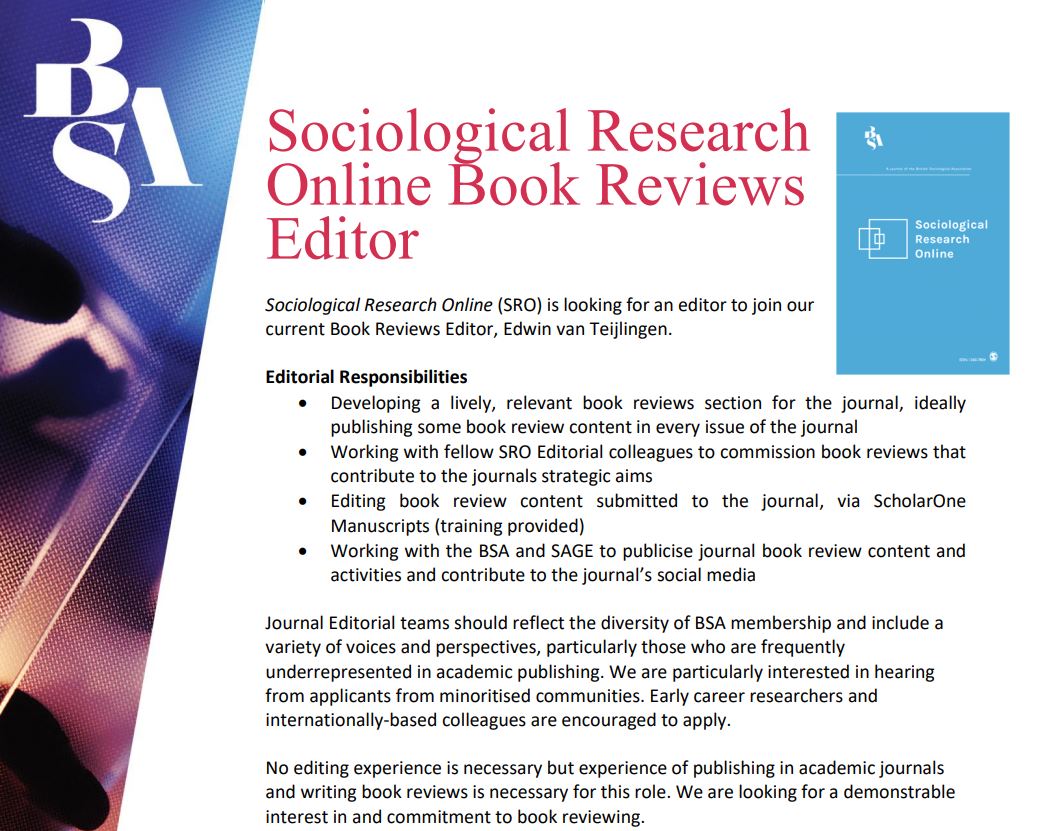
Sociological Research Online is published by the international social science publishing house SAGE. The editorial team has just been informed this week that the Impact Factor of the journal has increased to 1.6.
Interested candidates should submit a pro forma application of no more than 2 pages and a short CV. To receive a pro forma application, please contact Selina Hisir, BSA
Publications Coordinator, at email: sro.journal@britsoc.org.uk
As current book review editor I am very happy to talk to interested sociologists informally.
Prof. Edwin van Teijlingen
Centre for Midwifery & Women’s Health
Email: evteijlingen@bournemouth.ac.uk
Book review published by BU sociologist
The international journal Sociological Research Online published (online first) a review of the book The Mood of the World by Heinz Bude and published by Polity. This is an interesting short sociological book about mood, reviewed by Prof. Edwin van Teijlingen. Bude’s book covers a broad analysis on the mood of the current situation and the function of collective moods. He notes that people live and make everyday decisions not only through reason or based on theory but also because of their feelings and emotions. Moreover, mood acts as a key component for the human being as a whole. Instead of intellect, people structure and find themselves as a part of the world through collective experiences. As Bude says “The world is present in mood but,  instead of outside me, I find myself within it” (page 23). But mood is also personal according to Bude since “Depending on my mood, I am capable of anything or nothing” (page vii).
instead of outside me, I find myself within it” (page 23). But mood is also personal according to Bude since “Depending on my mood, I am capable of anything or nothing” (page vii).
Reference:
- van Teijlingen, E. (2020) The Mood of the World by Heinz Bude (book review), Sociological Research Online (Online First)
Loneliness
The government has announced the launch of a campaign to tackle the stigma of feeling alone. Loneliness Awareness Week began on Monday (17th June), led by Minister for Loneliness Mims Davies. The initiative is called “Let’s Talk Loneliness” and brings together The Marmalade Trust, the British Red Cross, the Co-op Foundation, the Campaign to End Loneliness, Mind, the Jo Cox Foundation and Public Health England.
The campaign hopes to end the stigma of feeling alone and create a culture of people feeling comfortable to talk about feeling alone. As part of Loneliness Awareness Week, the government has also announced it is partnering with the Co-op Foundation to match-fund a new £1.6 million initiative that supports activity in community spaces to promote social connections.
A new YouGov poll on loneliness was released on Monday, showing:
- People in cities surveyed had a higher incidence of reporting feeling lonely than the UK overall (56% v. 44%).
- 25% of adults have reported feeling lonely on weekends.
- Over the weekend, the evenings are the most likely time for people to feel lonely (16%).
Minister for Loneliness Mims Davies said:
- Loneliness is one of the biggest health challenges our country faces. It can affect anyone at any time and its impact is in line with smoking or obesity. But we can only begin to help one another if we feel able to understand, recognise and talk about it.
- Let’s Talk Loneliness’ will encourage us all to engage with this issue, speak up without stigma, spot the signs of loneliness and help build more meaningful connections so people feel less isolated.
For the government press release, see here.
Find out more about the Government loneliness strategy, see here: Let’s Talk Loneliness campaign
New paper by recent BU Sociology graduate
 Dr. Andrew Harding and his BU PhD supervisors just published a new paper from his Ph.D. research [1]. This interesting paper ‘Suppy-side review of the UK specialist housing market and why it is failing older people’ reviews the supply-side of policies and practices that impact on the shortage of supply in the contemporary specialist housing market for older people in the UK. Andrew is currently based at Lancaster University.
Dr. Andrew Harding and his BU PhD supervisors just published a new paper from his Ph.D. research [1]. This interesting paper ‘Suppy-side review of the UK specialist housing market and why it is failing older people’ reviews the supply-side of policies and practices that impact on the shortage of supply in the contemporary specialist housing market for older people in the UK. Andrew is currently based at Lancaster University.
Congratulations!
Prof. Edwin van Teijlingen
CMMPH
Reference:
- Harding, Andrew, Parker, Jonathan, Hean, Sarah & Hemingway, Ann (2018) Supply-side review of the UK specialist housing market and why it is failing older people. Housing, Care and Support
New edited book by BU academics
As a discipline and a profession, social work builds on a wide variety of methods and techniques for its practice. The broader frameworks of social work methodology guide social workers through the process of developing and creating interventions with different service users, carers and other professionals.
This book aims to provide an overview of current debates concerning social work methods and methodologies from an international perspective. It provides and enables exchanges about the variety of approaches and reflects the knowledge base for bringing social work theory into practice in different European settings and welfare contexts. It is a timely and welcome addition to the literature at a time when European cooperation and solidarity is much needed.
Edited by Professor Spatscheck from Germany, and Professors Ashencaen Crabtree and Parker from the UK, this book comprises chapters selected from presentations held at the 17th SocNet98 International University Week at Hochschule Bremen and includes further contributions from throughout the SocNet98 network. The work includes a chapter by the editors co-authored with past BU Sociology & Social Policy students Emilie Reeks, Dan Marsh and Ceyda Vasif.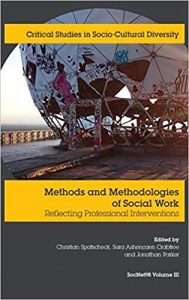
“SocNet98 – European Network of Universities/Schools of Social Work” provides highly successful International University Weeks for social work students and academics from across Europe to learn from and share with one another. These study weeks have enriched social work education for 20 years and continue to do so.
New paper by BU’s Lecturer in International Health
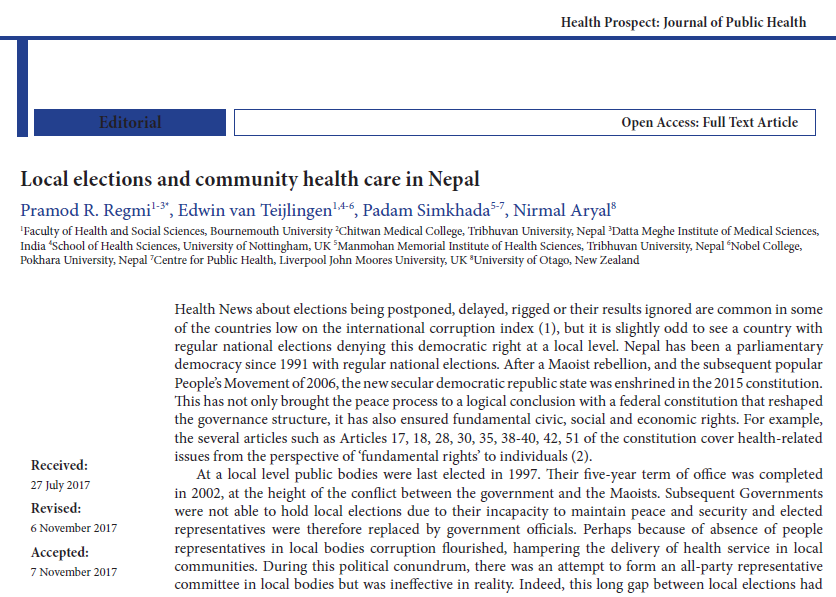 Congratulations to Dr. Pramod Regmi on the publication of his latest article ‘Local elections and community health care in Nepal’.[1] Pramod is our newly appointed Lecturer in International Health, who started this post exactly a month ago. The editorial, co-authored with BU Visiting Faculty Prof. Padam Simkhada (based at Liverpool John Moores University), Nirmal Aryal (based at the University of Otago, New Zealand) and CMMPH’s Prof. Edwin van Teijlingen, highlights the important link between local democracy and health in Nepal.
Congratulations to Dr. Pramod Regmi on the publication of his latest article ‘Local elections and community health care in Nepal’.[1] Pramod is our newly appointed Lecturer in International Health, who started this post exactly a month ago. The editorial, co-authored with BU Visiting Faculty Prof. Padam Simkhada (based at Liverpool John Moores University), Nirmal Aryal (based at the University of Otago, New Zealand) and CMMPH’s Prof. Edwin van Teijlingen, highlights the important link between local democracy and health in Nepal.
The paper argues that elected local governments are critical for public accountability on the operationalization of the SDGs (Sustainable Development Goals) at local level. Furthermore, having elected leaders in communities after such a long gap will certainly give Nepalese people rights and hopefully improve provision and access to health care services they are entitled to. Thus the role of civil society, community-based non-governmental organisation, development partners and the mass-media is critical in both advocacy for, and the effective monitoring and implementation of, local activities.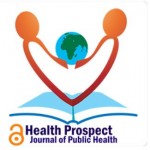
The paper appeared today in Health Prospect an Open Access journal published in English in Nepal as part of the Nepal Journals Online (NepJOL) service .
Reference
- Regmi, P., van Teijlingen, E., Simkhada, P., Aryal, N. (2017) Local elections and community health care in Nepal, Health Prospect: Journal of Public Health, 16(2):1-2.
New Public Health paper on Christmas Eve
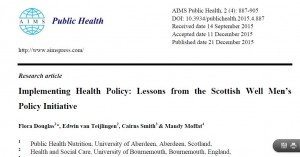 Our latest paper and the last one for 2015, published the day before Christmas. The paper ‘Implementing Health Policy: Lessons from the Scottish Well Men’s Policy Initiative’ appeared in AIMS Public Health [1]. The paper draws on evaluation research led by Dr. Flora Douglas (University of Aberdeen). This was a set of evaluations of the Well Men’s Health projects which were part of an initiative running in many health regions (or health boards as they are called in Scotland).
Our latest paper and the last one for 2015, published the day before Christmas. The paper ‘Implementing Health Policy: Lessons from the Scottish Well Men’s Policy Initiative’ appeared in AIMS Public Health [1]. The paper draws on evaluation research led by Dr. Flora Douglas (University of Aberdeen). This was a set of evaluations of the Well Men’s Health projects which were part of an initiative running in many health regions (or health boards as they are called in Scotland).
 The focus of this particular paper centres around the fact that little is known about how health professionals translate government health policy into action [2]. Our paper examines that process using the Scottish Well Men’s Services policy initiative as a ‘real world’ case study [1]. These Well Men’s Services were launched by the Scottish Government to address men’s health inequalities. Our analysis aimed to develop a deeper understanding of policy implementation as it naturally occurred. We used an analytical framework that was developed to reflect the ‘rational planning’ principles health professionals are commonly encouraged to use for implementation purposes.
The focus of this particular paper centres around the fact that little is known about how health professionals translate government health policy into action [2]. Our paper examines that process using the Scottish Well Men’s Services policy initiative as a ‘real world’ case study [1]. These Well Men’s Services were launched by the Scottish Government to address men’s health inequalities. Our analysis aimed to develop a deeper understanding of policy implementation as it naturally occurred. We used an analytical framework that was developed to reflect the ‘rational planning’ principles health professionals are commonly encouraged to use for implementation purposes.
Our analysis revealed four key themes: (1) ambiguity regarding the policy problem and means of intervention; (2) behavioral framing of the policy problem and intervention; (3) uncertainty about the policy evidence base and outcomes, and; (4) a focus on intervention as outcome. This study found that mechanistic planning heuristics (as a means of supporting implementation) fails to grapple with the indeterminate nature of population health problems. A new approach to planning and implementing public health interventions is required that recognises the complex and political nature of health problems; the inevitability of imperfect and contested evidence regarding intervention, and, future associated uncertainties.
The paper is published in an Open Access journal, so it is easily and freely available to public health professionals, policy-makers and health workers across the globe.
Prof. Edwin van Teijlingen
CMMPH
Reference:
- Douglas, F., van Teijlingen, E., Smith, W.C.S., Moffat, M. (2015) Implementing Health Policy: Lessons from the Scottish Well Men’s Policy Initiative, AIMS Public Health 2 (4): 887-905. http://www.aimspress.com/article/10.3934/publichealth.2015.4.887/fulltext.html
- Killoran, A., Kelly, M. (2004) Towards an evidence-based approach to tackling health inequalities: The English experience. Health Education Journal;63: 7-14.
BU very well represented in this year’s ERCS Festival!
 The ESRC website lists its Festival events for 2015 and amongst the interetsing events is a record number of BU events! The full list can be found on the ESRC webpages, click here!
The ESRC website lists its Festival events for 2015 and amongst the interetsing events is a record number of BU events! The full list can be found on the ESRC webpages, click here!
Pathways to impact: part deux!
This event aims to engage participants who attended a previous one-day ESRC Festival of Science event which took place in 2012 entitled, “Pathways to Impact: ageing, diversity, connectivity and community”.
Creatively mapping the coast
Children will have the chance to take part in a creative mapping exercise using coastal artefacts and pictures to create their own sensory and emotional maps of the topic, starting with the question of ‘how does it make me feel to be here?’
Safeguarding vulnerable adults from financial scamming
Older people are increasingly at risk of falling victim to financial scams that target vulnerable people, including mass marketing fraud via post, telephone or email and doorstep fraud.
This event will give practitioners, agencies and members of the public, the opportunity to come together to learn more about the threats posed.
Church as place: ethnography
This event asked the question:
- what meanings of place and space are constructed by secular or non-specifically religious and religious visiting of church buildings?
Creativity and dementia: making a connection
Bournemouth University Dementia Institute (BUDI) will bring dementia awareness to life through running creative activities including a performance from the BUDI Orchestra – made up of people affected by dementia and musicians – poetry and technology such as IPads and Nintendo Wii.
Child deaths and poverty: disadvantaged British children!
Are British children disadvantaged compared to children in other Western countries? An analysis of data from global sources compares the standards of mortality, poverty and health funding for children and adults in Britain vs. those in 20 other Western countries.
Copyright reform: the implications one year on
One year ago, in October 2014, the UK Government introduced major changes to the Copyright Law with the aim of promoting innovation and creativity. These included a range of exceptions and limitations benefiting users as well as educational and cultural institutions.
Enhancing social life through global social research – event 1
These exhibitions run over the course of three days presenting a showcase of Bournemouth University research projects demonstrating our research impacts on social and community wellbeing and our concern for diverse groups and work with a wide variety of stakeholders.
Fused all ways: transdisciplinary insider research
A group of researchers from Bournemouth University are researching the lived experience of students entering higher education from and in ‘non traditional’ contexts. By bringing together research, educational practice and students as research co-creators, a unique lens is created through which to observe the question.
Increasing fruit and vegetable intakes: Why? How? – Event 3
The 5-a-day campaign went global after a recommendation from the World Health Organisation that we should all be eating a least 400g of fruit and vegetables per day. Variations on this message are repeated in countries all across the world. But does the message cause more confusion than good?
Enhancing social life through global social research – event 2
These exhibitions run over the course of three days presenting a showcase of Bournemouth University research projects demonstrating our research impacts on social and community wellbeing and our concern for diverse groups and work with a wide variety of stakeholders.
Enhancing social life through global social research – event 3
These exhibitions run over the course of three days presenting a showcase of Bournemouth University research projects demonstrating our research impacts on social and community wellbeing and our concern for diverse groups and work with a wide variety of stakeholders.
Prof. Edwin van Teijlingen
CMMPH
Prof. Judy Wajcman LSE speaking this evening in FoL
 Prof Judy Wajcman will be the second speaker in the Distinguished Social Scientists Public Lectures Series tonight in Festival of Learning. The lecture is based on her new book Pressed for Time: The Acceleration of Life in Digital Capitalism.
Prof Judy Wajcman will be the second speaker in the Distinguished Social Scientists Public Lectures Series tonight in Festival of Learning. The lecture is based on her new book Pressed for Time: The Acceleration of Life in Digital Capitalism.
Those who attended Prof. John Holmwood’s presentation on last Monday on ‘The University, Democracy and the Public Interest’ will agree that the Distinguished Social Scientists Public Lectures Series started with a great and challenging presentation.
Tonight’s session is free and will be in the Barnes Lecture theatre at Talbot Campus starting at 18.00.
Prof. Edwin van Teijlingen
CMMPH
Impact, outcome and research methods – HSC PhD student on LSE Impact Blog
 With working at a university and the rise of the REF, you would have almost certainly come across the terms ‘impact’ and ‘outcomes’. Whilst there might be a great deal of similarity and overlap in the use of these terms, it is important to discuss the sometime subtle differences between ‘impact’ and ‘outcome’. What consequences might this have for the design of social research?
With working at a university and the rise of the REF, you would have almost certainly come across the terms ‘impact’ and ‘outcomes’. Whilst there might be a great deal of similarity and overlap in the use of these terms, it is important to discuss the sometime subtle differences between ‘impact’ and ‘outcome’. What consequences might this have for the design of social research?
The health and social care literature uses these terms in a rather haphazard manner. The differences are rarely discussed and it can be suggested that many use the wrong terminology. In this blog post on the LSE Impact of Social Sciences Blog, relating to the field of information and advice on welfare issues, I briefly discuss and propose that there are fundamental differences between what an impact refers to and what an outcome refers to. Furthermore, I suggest that these differences are significant and profound enough to align each to opposing research methodologies.
These thoughts relate to the key areas of my PhD project with Elderly Accommodation Counsel (EAC) in London. EAC coordinates the FirstStop service which provides information and advice to older people (and other stakeholders) on housing and care issues. My research is focused on how older people use information and advice on housing and the wider impact that this has.
If anyone has an interest in this area, do get in touch!
ENABLE-ing Social Work Education: Sharing UK experiences and insights with our Malaysian colleagues
Context is all-important when designing and developing any curriculum but more so in respect of social work programmes because of the interpersonal, social and cultural aspects of the work. However, isomorphic global trends in higher education in general and social work in particular make comparisons and sharing ideas useful, even when we acknowledge that social work as a discipline and practice differs from nation to nation across the world. We were able to offer some insights and reflections following recent UK experiences as a way of highlighting some of the pitfalls that might arise and could be best avoided. We followed this by exploring possible ways forward for academic social work including publication strategies and internationalising the curriculum and departmental outlooks for those universities offering social work. This will be continued in discussion later in March 2014.
Learning by experience & ways forward:
There are, we believe, a number of key aspects of learning that Malaysian social workers and social work academics may wish to reflect on in the exciting times ahead as the Social Work Acts get closer to endorsement and implementation in Malaysia. These are:
• The need to reflect critically on moves towards professionalization, regulation and registration; recognising and identifying exactly what these moves are intended to achieve and not accepting uncritically that they will automatically produce better social work services.
• Developing appropriate ways to ensure that numbers of social workers employed in social work posts increase and, whilst paying attention to retaining those social care workers who may not be able to qualify at the desired level and protecting their career interests, not diluting the core principles underpinning reform.
• Speaking with one voice for social work, including Government departments, professional bodies, NGOs, practitioners and academics to ensure that unwelcome political interference is resisted. This may require developing a critically reflective stance and, at times, resistance to official pronouncements.
• Developing a robust research base for the profession that speaks with authority and evidence. Research that is about, for and with social work and social workers.
• Learning from the mistakes of other countries, e.g. England’s recent official approach to professionalization, as well as from their successes, whilst ensuring that all developments are appropriately contextualised and address the needs of all peoples in Malaysia.
• Internationalising social work education to be able to assess the worth of other models, to understand other approaches and to enhance confidence in bespoke Malaysian approaches where they work well and to adapt them when they do not.
A core element of learning that UK, and especially English, social work academics and practitioners need to undertake is to reflect on the core principles that are demonstrated elsewhere in the world; principles that are, in fact, illustrated by the commitment, energy and ‘can-do’ attitude we have seen from Malaysian social workers, NGOs, professional bodies and academics. In a recent note we sent to our UK Association of Professors of Social Work about our need to learn from global approaches to social work, we were heartened to hear how many of our colleagues agreed wholeheartedly.
Malaysian social work possesses a number of important strengths that will assist in making the most of the challenges and opportunities that lie ahead. These include strong and competent academic teams within the universities who work with each other, government departments, NGOs and professional bodies and speak with a single voice, in the main, about the way forward. The enthusiasm and dedication of social workers, managers and academics promoting a ‘can-do’ attitude that will make positive change happen. It is important, however, to foster a critically reflexive approach that allows for challenge and resistance where that is appropriate. This may be harder to achieve for our colleagues for whom compliance is a virtue taught from an early age.
Malaysian social workers should promote their achievements across the region and across the world. We saw many examples of good practice to highlight. Furthermore to sustain these excellent developments we discussed the importance that the universities, in conjunctions with other social work groups, develop and work towards a robust research strategy.
Social work research is not costly, and much more important than addressing university KPIs for income-generation (which in social science, in general, is difficult and often more so for social work which across the world is seen either as a poor relation to other disciplines or a troublesome aspect of life). However, conducting social work research provides both understanding and illumination of social phenomena and an evidence-base for social work that can be used to grow its future. One of the most important elements of such a strategy that we discussed together concerned publication and we offered our experience suggesting that publication in international, as well as ASEAN, journals represents the best way forward. Whilst this can be difficult when writing in a second language our established experience with social work colleagues at both Universiti Sains Malaysia and Universiti Malaysia Sarawak shows that writing with scholars from other countries, and including native English speakers can overcome these difficulties. Doing so increases the visibility of Malaysian social work and citation counts, something that our colleagues we aware may appeal to their university managers.
The future is potentially very bright for Malaysian social work, and we hope that the opportunities will be grasped and a qualified, skilled, principled and professional workforce represents the future.
(Much of this blog was adapted from a paper written for the Malaysian Association of Social Workers journal)
Prof Jonathan Parker & Dr Sara Ashencaen Crabtree
Abortion a hot topic in UK in the 1960s and 1970s: A sociological analysis of book reviews of the edited volume Experience with Abortion: A case study of North-East Scotland
 Late August Sociological Research Online published my historical analysis of the reviews of the book Experience with Abortion: A case study of North-East Scotland edited by Aberdeen-based academic Gordon Horobin. Experience with Abortion, published in 1973 by Cambridge University Press, was the first study of abortion of its kind to be published in the UK since the introduction of the 1967 Abortion Act. The book’s contributors had been involved in a multi-disciplinary longitudinal study of women’s experience of abortion in Aberdeen in the period 1963-1969.
Late August Sociological Research Online published my historical analysis of the reviews of the book Experience with Abortion: A case study of North-East Scotland edited by Aberdeen-based academic Gordon Horobin. Experience with Abortion, published in 1973 by Cambridge University Press, was the first study of abortion of its kind to be published in the UK since the introduction of the 1967 Abortion Act. The book’s contributors had been involved in a multi-disciplinary longitudinal study of women’s experience of abortion in Aberdeen in the period 1963-1969.
The paper is content analysis of the book reviews which I found in the late 1980s when I helped clear out Gordon Horobin’s former office in the Department of Sociology (University of Aberdeen). Amongst the papers to be thrown out were photocopies and cuttings of reviews of Horobin’s book of the first social medicine study on abortion published since the introduction of the 1967 Abortion Act. I saved the paperwork from recycling. Since then I have searched electronically for further reviews at the time and this resulted in the recently published article.
The paper in Sociological Research Online sets the scene at the time of publication in the early 1970s, and includes abortion as a societal issue, the 1967 Abortion Act and the role of the MRC Medical Sociology Unit in Aberdeen. The reviews were analysed using content analysis. Considering the controversy of abortion at the time, it is interesting that the book reviews were overwhelmingly positive towards both Experience with Abortion and the need for high quality social science research in this field. Several reviews highlighted the importance of having someone like Sir Dugald Baird in Aberdeen and of the Aberdeen-based Medical Research Council’s (MRC) Medical Sociology Unit. Other reviews highlighted Aberdeen’s reputation as a city with a fairly liberal policy towards abortion before the Abortion. One of the chapters in Experience with Abortion reported that between 1938–1947, some 233 women in North-East Scotland had their pregnancies terminated in Aberdeen, less than 25 per year! Dugald Baird started offering abortions on the NHS in the 1950s. He would offer to terminate the unwanted pregnancies of women with too many children and offer subsequent sterilisation. Today nearly 40 years later, abortion has largely disappeared from the social policy agenda in the UK, although not in many other countries.
Edwin van Teijlingen
References:
Horobin, G. (ed.) (1973) Experience with Abortion; A case study of North-East Scotland, Cambridge: Cambridge University Press.
van Teijlingen E.R. (2012) A Review of Book Reviews: A Sociological Analysis of Reviews of the Edited Book Experience with Abortion, Sociological Research Online 17 (3) available online: http://www.socresonline.org.uk/17/3/14.html
 Last month we reported on this Bournemouth University Research Blog (click here!) that Ms. Amshu Dhakal, presented findings from our Nepal Federal Health System Project in Nepal. Amshu’s presentation at the Nepal Health Conclave 2024, organised by the Ministry of Health and Population and supported by WHO (World Health Organization) Nepal and UNFPA, resulted in an online article in Nepal. This article in Nepali in Swasthya Khabar Patrika features lessons learnt and evidence from our research project “The Impact of Federalisation on the Health System of Nepal.”
Last month we reported on this Bournemouth University Research Blog (click here!) that Ms. Amshu Dhakal, presented findings from our Nepal Federal Health System Project in Nepal. Amshu’s presentation at the Nepal Health Conclave 2024, organised by the Ministry of Health and Population and supported by WHO (World Health Organization) Nepal and UNFPA, resulted in an online article in Nepal. This article in Nepali in Swasthya Khabar Patrika features lessons learnt and evidence from our research project “The Impact of Federalisation on the Health System of Nepal.”
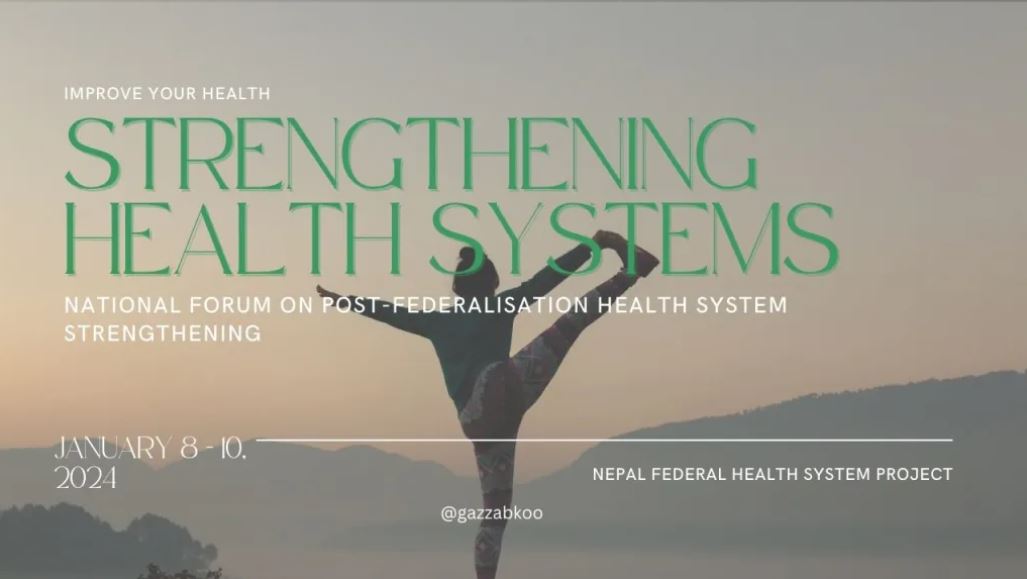 This is one of several news articles from this project which have appeared in both English and Nepali in national media in Nepal.
This is one of several news articles from this project which have appeared in both English and Nepali in national media in Nepal. 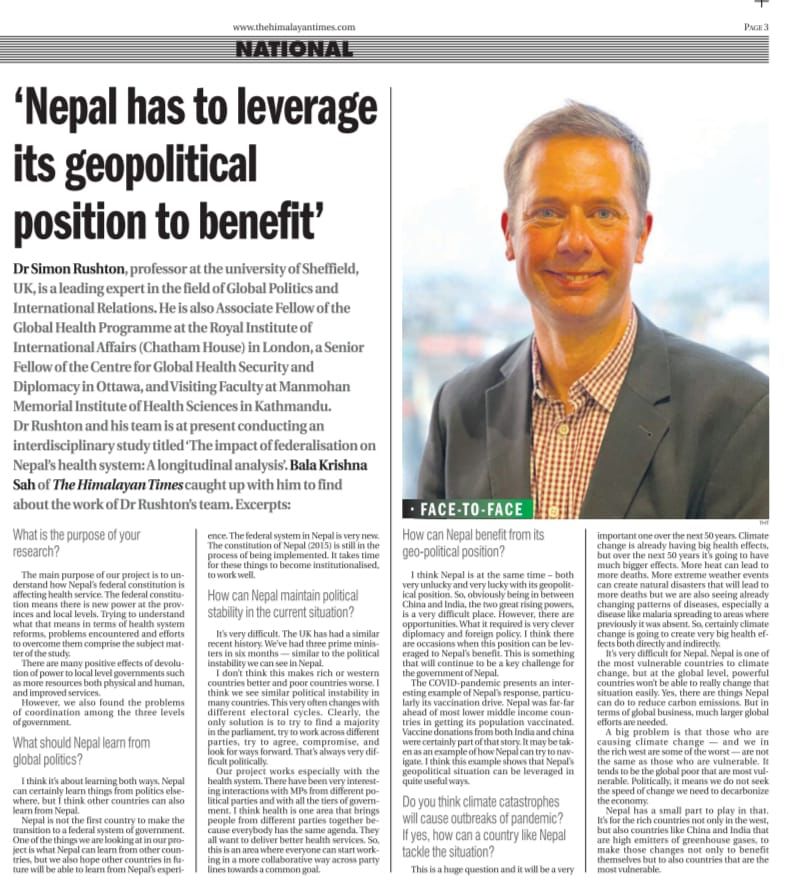 Our interdisciplinary research project ‘
Our interdisciplinary research project ‘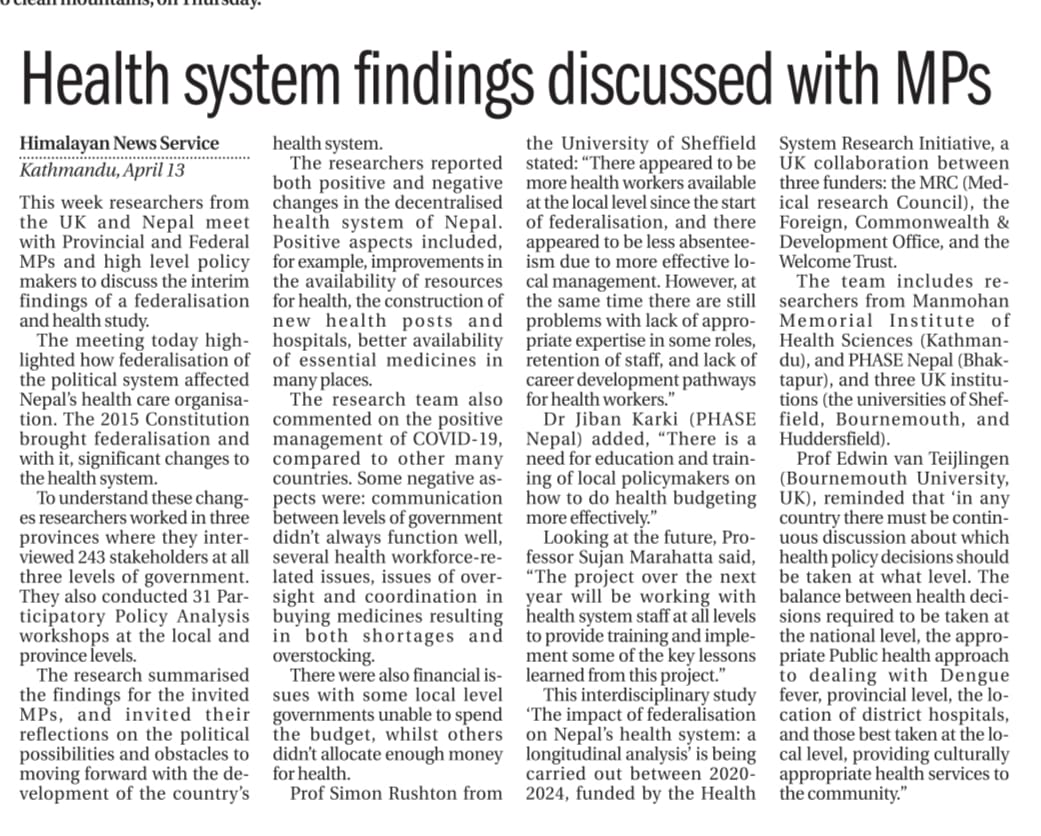
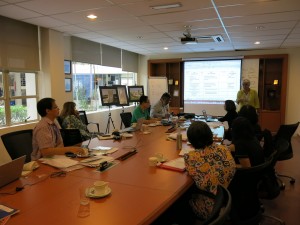











 Beyond Academia: Exploring Career Options for Early Career Researchers – Online Workshop
Beyond Academia: Exploring Career Options for Early Career Researchers – Online Workshop UKCGE Recognised Research Supervision Programme: Deadline Approaching
UKCGE Recognised Research Supervision Programme: Deadline Approaching SPROUT: From Sustainable Research to Sustainable Research Lives
SPROUT: From Sustainable Research to Sustainable Research Lives BRIAN upgrade and new look
BRIAN upgrade and new look Seeing the fruits of your labour in Bangladesh
Seeing the fruits of your labour in Bangladesh ECR Funding Open Call: Research Culture & Community Grant – Apply now
ECR Funding Open Call: Research Culture & Community Grant – Apply now ECR Funding Open Call: Research Culture & Community Grant – Application Deadline Friday 12 December
ECR Funding Open Call: Research Culture & Community Grant – Application Deadline Friday 12 December MSCA Postdoctoral Fellowships 2025 Call
MSCA Postdoctoral Fellowships 2025 Call ERC Advanced Grant 2025 Webinar
ERC Advanced Grant 2025 Webinar Update on UKRO services
Update on UKRO services European research project exploring use of ‘virtual twins’ to better manage metabolic associated fatty liver disease
European research project exploring use of ‘virtual twins’ to better manage metabolic associated fatty liver disease